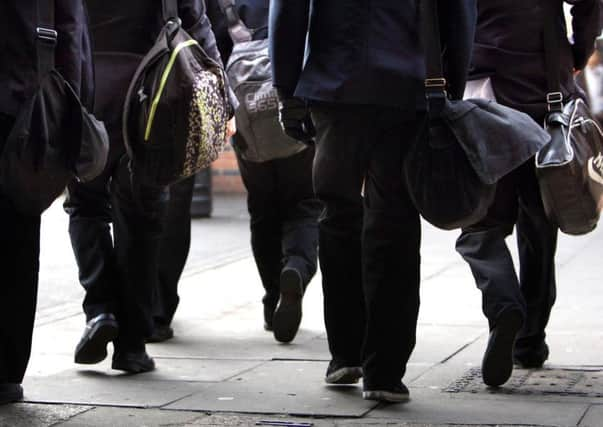Yorkshire school suspension rates highest across the country


Across the country, more than 40 children a day were expelled from England’s state schools last year, Government figures reveal, an increase likely to spark fresh debate about behaviour in schools. But as the figures also reveal that the suspension rates for the region are highest in the country, at five times the national average in some areas, deep concerns have been raised over what has prompted such a spike - and the impact on education.
“We are extremely concerned that this increase in exclusions is a result of the school funding crisis and cuts to local children’s services,” said Geoff Barton, general secretary of the Association of School and College Leaders.
Advertisement
Hide AdAdvertisement
Hide Ad“Schools have had to cut back on the individual support they are able to give students, making it more difficult to provide early intervention and prevent behavioural problems from escalating.
“At the same time council support services for vulnerable families have been cut back, meaning that schools are having to pick up the pieces. Schools only exclude pupils as a last resort and when all other avenues have been exhausted. The Government needs to provide the funding that is necessary to provide support at an early stage.”
The official figures show that in the academic year 2016/17, 605 children were permanently expelled from the region’s schools, a rise on 565 from the year before. But the biggest hike came in suspensions, with a dramatic 18 per cent spike in the numbers of young people subjected to fixed term exclusions in Yorkshire, from around 50,000 to 59,000.
In some parts of the region such as Doncaster and Barnsley, the suspension rates were among the third highest in the country, at around five times the national average. Both authorities were among those written to by Cathy Kirby, regional inspector for Ofsted, earlier this year as she warned schools should only use exclusion as a “last resort”.
Advertisement
Hide AdAdvertisement
Hide AdCoun Tim Cheetham, Barnsley Council cabinet member for people, said the authority recognised its rates were too high: “This is largely down to specific issues around behaviour and respect within a select number of schools. To overcome these problems and see a long-term improvement in behaviour, a number of fixed-term exclusions were necessary – resulting in the spike that these figures highlight.”
The authority is working with Ofsted, the DfE, and schools who are not reducing rates fast enough, he added, although there has been a gradual fall in the number of instances. And in Doncaster, Riana Nelson, assistant director of partnerships and operational delivery, said this was an issue of “great concern”.
“Although this growth is replicated nationally we know that our schools and academies can all benefit from stronger support and improved practices,” she said. “All the academies across the borough set their own behaviour policies but we are committed to working with them to improve outcomes for young people.”
A behaviour transformation strategy has been launched in the area, she said, adding that it has also now been designated a social mobility opportunity area, in the hope of improving outcomes for disadvantaged young people.
“A key focus of this work is to improve attendance and prevent exclusions so Doncaster children have access to the best education and improved life chances,” she added.